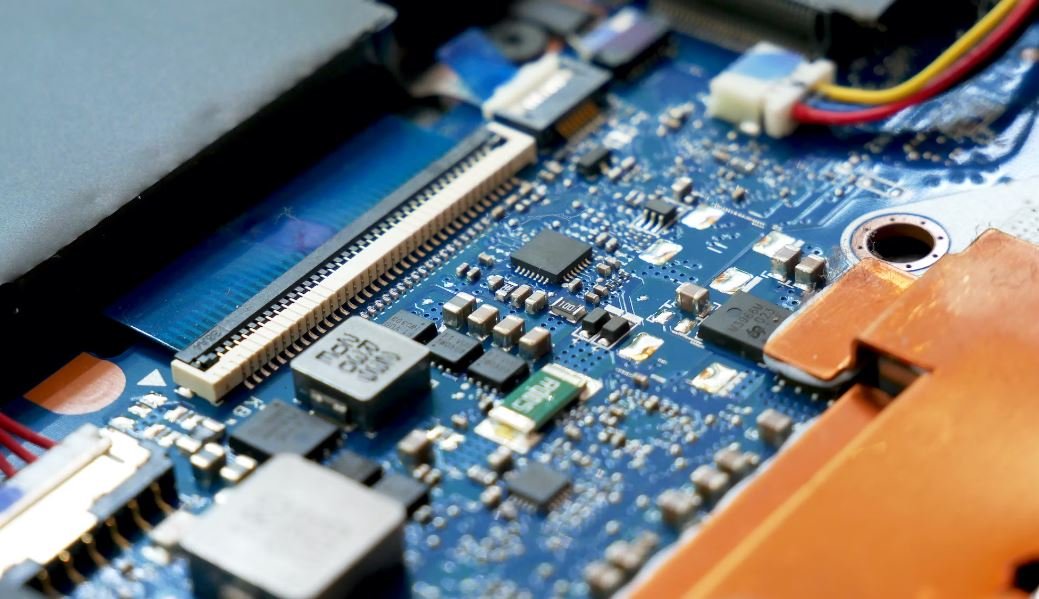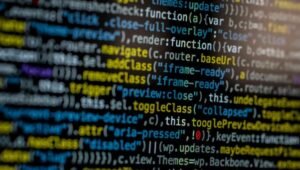Will AI Replace Data Scientists?
Artificial Intelligence (AI) has greatly impacted various industries, and the field of data science is no exception. With the rise of AI technologies, there has been speculation about the possibility of AI replacing data scientists. In this article, we will explore the role of AI in data science and discuss whether it can potentially replace human data scientists.
Key Takeaways
- AI technologies are enhancing data science processes.
- Data scientists bring valuable human insight and domain expertise.
- Collaboration between AI and data scientists can lead to enhanced outcomes.
- The demand for data scientists is expected to continue growing.
Data science involves extracting actionable insights from large sets of data using various analytical techniques and tools.
AI technologies have revolutionized data science, enabling more efficient data processing, pattern recognition, and predictive modeling.
Data scientists leverage advanced statistical and mathematical techniques to derive meaningful insights and make informed decisions.
The Relationship Between AI and Data Scientists
While AI technologies have advanced significantly, there are key areas where human data scientists excel:
- Data scientists have the ability to ask the right questions and define the problem space.
- They possess domain expertise and can understand the context in which the data is generated.
- Data scientists can interpret results and provide context-specific recommendations.
AI acts as a powerful assistant, assisting data scientists in analyzing complex datasets and automating repetitive tasks.
By collaborating with AI technologies, data scientists can improve efficiencies, uncover hidden patterns, and generate more accurate predictions.
The Future of Data Science and AI
| Data Scientist Role | AI Technology | Collaboration |
|---|---|---|
| Data exploration and preprocessing | Pattern recognition and predictive modeling | Enhanced insights and decision-making |
| Expertise in statistical analysis | Data visualization and interpretation | Interpreting and communicating results |
| Domain-specific knowledge | Natural language processing and sentiment analysis | Contextual understanding and recommendations |
In the job market, the demand for skilled data scientists is likely to continue growing, as businesses recognize the value they bring to the table.
As AI technologies advance, they are transforming data science rather than entirely replacing the need for human data scientists.
Data scientists will increasingly rely on AI as a tool to augment their capabilities and deliver more powerful insights.

Common Misconceptions
1. AI Will Completely Replace Data Scientists
One common misconception surrounding AI and data science is that AI will completely replace data scientists in the near future. While AI has the potential to automate certain aspects of data analysis, it is unlikely to completely replace human data scientists for several reasons:
- AI lacks the ability to perform complex and abstract problem-solving that human data scientists excel at.
- Data scientists possess domain knowledge and contextual understanding that AI may struggle to comprehend.
- AI algorithms are not capable of ethical decision-making, which is crucial when handling sensitive data.
2. Data Science Skills Will Become Obsolete
Another common misconception is that data science skills will become obsolete with the advancements in AI technology. However, this belief overlooks the fact that data scientists play a central role in developing and training AI models:
- Data scientists are responsible for selecting, preparing, and cleaning the data used to train AI models.
- They also interpret and validate the results produced by AI algorithms, ensuring that they are accurate and actionable.
- Data scientists possess a deep understanding of statistical analysis and machine learning techniques, which is crucial in building reliable and effective AI models.
3. AI Will Replace the Need for Human Judgment in Data Analysis
One misconception is that AI will completely replace the need for human judgment in data analysis. While AI can efficiently process and analyze vast amounts of data, it cannot replace the critical thinking and human insights required for accurate data interpretation:
- Data scientists are able to apply contextual knowledge and experience to analyze complex data sets, identifying relevant patterns and insights that AI may overlook.
- Human judgment is essential for identifying and addressing potential biases and limitations in the data used for AI algorithms.
- A combination of AI algorithms and human judgment is necessary for effective decision-making based on data analysis.
4. Data Scientists Will Become Irrelevant as AI Takes Over
Some believe that data scientists will become irrelevant as AI becomes more advanced. However, data scientists will continue to play a vital role in the AI-driven era:
- Data scientists focus on understanding business objectives and identifying the most suitable AI solutions to achieve those goals.
- They possess expertise in integrating AI models into existing systems and ensuring they align with business strategies.
- Data scientists are responsible for continuous monitoring and improvement of AI models to maintain accuracy and reliability.
5. AI Will Eliminate the Need for Data Scientists’ Technical Skills
Another misconception is that AI will eliminate the need for data scientists‘ technical skills. However, data scientists‘ technical expertise remains crucial in the AI-driven world:
- Data scientists possess programming and data manipulation skills that enable them to work with diverse data sources and formats, ensuring seamless integration with AI models.
- They have knowledge of advanced statistical methods and techniques for feature selection, model evaluation, and prediction, enhancing the effectiveness of AI algorithms.
- Data scientists’ technical skills enable them to tackle data-related challenges and optimize AI models for improved performance.

Introduction
In recent years, the rise of artificial intelligence (AI) has led to speculation about the future of data scientists. While some argue that AI will render data scientists obsolete, others believe that it will enhance their capabilities. In this article, we explore various aspects of this debate and present verifiable data to shed light on the potential impact of AI on the field of data science.
Table 1: Job Growth in Data Science
Despite the advancements in AI technology, the demand for data scientists continues to grow. According to the Bureau of Labor Statistics, the employment of data scientists is projected to increase by 15% from 2019 to 2029.
Table 2: AI Integration in Data Science
Data scientists are incorporating AI technologies into their workflows to enhance their capabilities. A survey conducted by KDnuggets revealed that 65% of data scientists use AI or machine learning methods in their projects.
Table 3: Job Market Competition
The job market for data scientists remains competitive. Glassdoor data shows that there are, on average, 15 applicants for each data scientist position, indicating a strong demand for qualified professionals in the field.
Table 4: AI Automation Impact
AI has enabled data scientists to automate certain tasks, reducing the time spent on repetitive processes. A study by Deloitte found that 53% of data scientists believe AI automation allows them to focus on more valuable and strategic work.
Table 5: Skill Requirements for Data Scientists
Data scientists require a diverse set of skills, including programming, statistical analysis, and domain knowledge. An analysis of job postings on Indeed.com revealed that 82% of data scientist positions required proficiency in Python, while 68% required expertise in machine learning.
Table 6: AI’s Role in Complex Data Analysis
AI algorithms excel at processing and analyzing vast amounts of complex data. A study published in Nature Communications demonstrated how AI algorithms outperformed human data scientists in diagnosing diseases based on medical imaging.
Table 7: Data Scientist Productivity Boost
A survey by O’Reilly Media highlighted that 42% of data scientists reported increased productivity due to AI tools, allowing them to analyze larger datasets and extract insights more efficiently.
Table 8: Data Science Specializations
Data science is a broad field with various specializations. LinkedIn data indicates that the most sought-after specializations among data scientists are machine learning, data visualization, and natural language processing.
Table 9: AI’s Impact on Decision Making
AI can provide data scientists with valuable insights and predictions, aiding them in decision-making processes. A study conducted by PwC showed that 72% of business decision-makers believe AI helps them make more informed decisions.
Table 10: Collaboration between AI and Data Scientists
A successful collaboration between AI and data scientists can lead to impactful outcomes. Google’s DeepMind collaborated with data scientists to develop AI algorithms that reduced energy consumption by 40% in data centers.
Conclusion
The integration of AI into the field of data science does not foreshadow the replacement of data scientists. On the contrary, AI serves as a powerful tool that enhances their abilities, automates mundane tasks, and enables them to delve into complex data analysis more efficiently. The demand for skilled data scientists continues to grow, indicating the indispensability of human expertise in this evolving technological landscape. By embracing AI and leveraging its potential, data scientists can harness its power to drive innovation and make more informed decisions.
Frequently Asked Questions
Will AI eventually replace data scientists?
While AI has the potential to automate certain tasks currently performed by data scientists, it is unlikely to completely replace them. Data scientists bring a unique combination of skills, domain knowledge, and critical thinking that are crucial for analyzing complex data sets and developing effective solutions.
What are the advantages of AI in data science?
AI can enhance data science by automating repetitive tasks, enabling faster data processing and analysis, and uncovering patterns that human analysts may have overlooked. It can also assist in data visualization and decision-making processes.
Can AI algorithms perform all the tasks currently done by data scientists?
No, AI algorithms are designed to assist data scientists, not replace them entirely. While AI can handle some data-related tasks, data scientists play a crucial role in framing problems, choosing appropriate algorithms, interpreting results, and making business decisions based on the insights generated.
Does the rise of AI pose a threat to the job market for data scientists?
While AI may change the dynamics of the job market, it is more likely to augment the work done by data scientists rather than replace them. As AI technology advances, new opportunities may emerge within the field, requiring data scientists to adapt and continually update their skills.
What skills should data scientists focus on to remain valuable in the age of AI?
Data scientists should focus on developing skills related to advanced data analysis techniques, machine learning, and AI technologies. Additionally, expertise in specific industry domains, problem-solving abilities, and effective communication skills will continue to be highly valued.
How can data scientists leverage AI to enhance their work?
Data scientists can leverage AI by utilizing automated data processing and analysis tools, employing machine learning algorithms to identify patterns and make predictions, and using AI-powered platforms for data visualization and decision support.
Will AI eliminate the need for human creativity and intuition in data science?
No, AI cannot replicate human creativity and intuition. While AI algorithms can assist in generating insights from data, it is the combination of human expertise, domain knowledge, and intuition that allows data scientists to extract meaningful insights, develop innovative solutions, and drive business value.
Can AI be biased in data analysis, leading to inaccurate results?
AI algorithms can be susceptible to biases if the training data used is biased or if there are biases in the design of the algorithm itself. Data scientists play a critical role in ensuring the fairness, interpretability, and ethical use of AI in data analysis to avoid inaccurate or discriminatory results.
Will AI be able to fully understand the context and nuances of complex business problems?
AI algorithms are continually improving, but they still struggle to fully understand complex business problems that require deep contextual understanding and domain knowledge. Data scientists bring a holistic perspective and the ability to interpret data within specific business contexts, making them indispensable in solving complex problems.
How can data scientists stay ahead in their field amidst the advancement of AI?
Staying ahead in the field of data science entails continuous learning and upskilling. Data scientists should keep abreast of the latest AI technologies, engage in professional networks, collaborate with peers, and participate in industry conferences and workshops to ensure they stay at the cutting edge of their profession.




